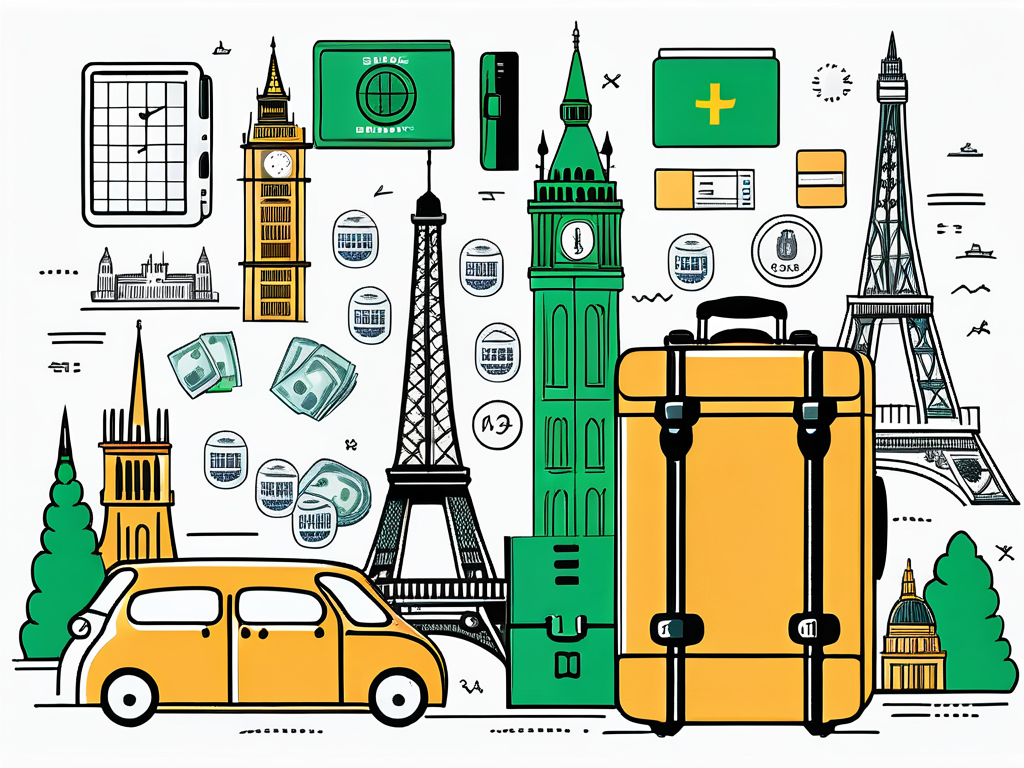Relocating to a new continent can be both an exhilarating and daunting experience. As Europe serves as a mosaic of cultures, languages, and regulations, it’s crucial to equip yourself with the right knowledge before making the leap. This article will guide you through the essential aspects of moving to Europe, providing valuable insights into its diverse culture, legal requirements, and financial considerations.
Understanding the Basics of European Culture
Language Diversity in Europe
One of the most notable aspects of Europe is its rich linguistic diversity. With 24 official languages and hundreds of regional dialects, communication can significantly differ from one country to another. For instance, while English is widely spoken in the UK and Ireland, other nations might have their preferred languages such as French in France and German in Germany. Understanding the predominant languages of your destination will help you integrate more smoothly.
If you plan on living in a non-English-speaking country, it’s advisable to learn the basics of the local language. This not only enhances your everyday interactions but also shows respect for the culture. Language schools and online platforms can be invaluable resources for picking up a new language. Additionally, many European cities offer language exchange meetups, where locals and expatriates can practice speaking with one another, making the learning process both effective and enjoyable.
Social Etiquette Across Europe
Social norms and etiquette can vary greatly within Europe, affecting everything from greetings to dining customs. For instance, in some countries like Italy, it’s common to greet with a kiss on the cheek, while in others like the UK, a simple handshake suffices. Understanding these nuances can help in making a positive first impression.
Dining etiquette is another area where cultural differences become apparent. In France, it is customary to keep your hands on the table but not your elbows, while in certain Mediterranean countries, more informal dining settings often allow for greater freedom. Researching the local customs will help you navigate these social landscapes effectively. Furthermore, being aware of the local tipping practices can also be crucial; in some countries, like Germany, tipping is expected but not obligatory, while in others, such as Italy, rounding up the bill is a common practice to show appreciation for good service.
Food and Cuisine Differences
European cuisine is as diverse as its cultures. Each country boasts unique dishes, cooking techniques, and ingredient preferences. For example, while Italians are famous for their pasta and pizzas, the Finnish take pride in their fish dishes, often featuring salmon and herring.
Embracing local food can enhance your relocation experience. Try local markets, dining establishments, and cooking classes to immerse yourself in the culinary traditions. Additionally, understanding dietary restrictions and preferences in your new home can help you navigate social situations more comfortably. For instance, in countries like Greece, sharing food is a sign of hospitality, and you may find yourself enjoying a meze platter with friends, which encourages communal dining and conversation. Exploring local food festivals can also provide insight into regional specialties and seasonal ingredients, deepening your appreciation for the local culture and community.
Legal and Administrative Requirements
Visa and Residency Information
The legal landscape surrounding visas and residency can be complex. Depending on your nationality and the country you’re moving to, the requirements may vary significantly. Some countries may offer easier pathways to residency for skilled workers, while others might impose stricter regulations.
Before moving, familiarize yourself with the visa application process. Visit the official immigration website of your destination to gather accurate and updated information regarding visa types, processing times, and required documentation.
Tax Implications of Moving to Europe
Understanding the tax implications of relocating to Europe is crucial to avoid unforeseen expenses. Tax systems differ across countries, often encompassing income tax, capital gains tax, and value-added tax (VAT). For instance, Scandinavian countries are known for higher taxes, which fund their robust public services.
Consider consulting a tax advisor to determine how your move may affect your tax liabilities in both your home country and your new residence. Engaging with local tax authorities upon arrival can also provide clarity on your obligations.
Healthcare Systems in Europe
Access to healthcare is another crucial consideration when moving to Europe. Most European countries have publicly funded healthcare systems, but the extent of coverage can vary. For example, countries like France and Spain are known for their high-quality public health services, while others may rely more heavily on private insurance alternatives.
Ensure you understand how to access healthcare in your new country. It’s beneficial to register with a local healthcare provider and, if required, acquire any supplementary health insurance to cover additional services or treatments.
Financial Considerations
Cost of Living Across Europe
The cost of living can vary dramatically from one European city to another. Cities like Zurich and Oslo are often cited as some of the most expensive, while places in Eastern Europe like Budapest or Sofia can be significantly more affordable.

When planning your budget, consider factors such as housing costs, transportation expenses, and general living costs. Creating a detailed budget before your move will help set realistic expectations for your new financial life in Europe.
Opening a Bank Account in Europe
Once you arrive, setting up a local bank account is advisable to facilitate transactions and manage finances. Research banks in your chosen country to find one that meets your needs, whether that’s low fees, online banking, or favorable currency exchange rates.
Most banks will require identification and proof of residence. It’s advisable to open an account as soon as possible to avoid potential complications with international transfers or currency exchange.
Understanding the Euro and Other Currencies
While the Euro is widely used across much of Europe, several countries continue to use their currencies, such as the British Pound in the UK and the Swedish Krona in Sweden. Understanding the currency landscape is crucial for budgeting and expenses.
Familiarize yourself with current exchange rates and consider using financial apps to assist with real-time currency conversions. This will help you manage your finances effectively, especially while traveling between countries.
Housing and Accommodation
Renting vs Buying Property in Europe
Deciding between renting and buying property is a significant decision that will depend largely on your long-term plans and financial situation. In many European cities, renting is the norm, especially in urban areas where property prices can be exorbitant.
Consider the flexibility renting offers, which might be beneficial if you’re unsure about where you want to settle permanently. However, investing in property can provide stability and potential financial appreciation over time. Research local real estate markets to make an informed decision.
Understanding European Housing Standards
Housing standards across Europe can differ widely, especially concerning size, amenities, and regulations. In some countries, such as the Netherlands and Germany, properties may have specific guidelines regarding energy efficiency and construction quality.
Before committing to a lease or purchase, it is vital to understand what to expect in terms of housing quality and standards in your new location. Utilizing local real estate agencies can provide insights into these aspects.
Location and Commuting Factors
When choosing where to live, consider not only the aesthetics and amenities but also your commuting options. Cities in Europe generally have well-established public transportation systems, making it easier to navigate.
Evaluate your proximity to work, schools, and essential services to ensure a comfortable and convenient lifestyle. Understanding commuting times and options will play a vital role in your overall satisfaction with your new home.
Moving to Europe is an enriching experience filled with opportunities and challenges. By understanding the cultural nuances, legal requirements, financial aspects, and housing options, you’re setting yourself up for a successful transition to your new life abroad. Good luck on your journey!
















